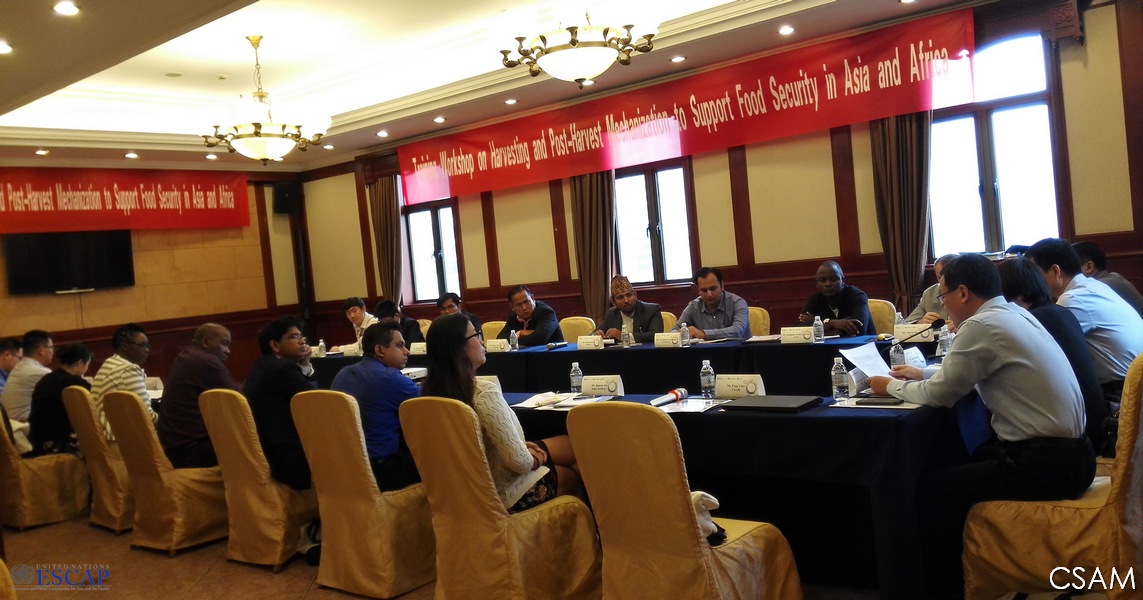Joint Efforts to Reduce Loss and Waste in Harvesting and Post-harvesting in Asia and Africa

In collaboration with Nanjing Research Institute for Agricultural Mechanization of the Ministry of Agriculture and Rural Affairs of China and the United Nations World Food Programme, CSAM organized a Training Workshop on Harvesting and Post-Harvest Mechanization to Support Food Security in Asia and Africa on 21st-27th May 2018 in Shanghai and Jiangsu.
It has been estimated by FAO that "approximately one-third of all food produced for human consumption in the world is lost or wasted each year." In developing countries in Africa and Asia, the majority of this loss takes place during harvesting and post-farm gate and continues throughout the chain while the food is being transported, packaged, and processed. One of the very important reasons contributing to such losses is lack of access to appropriate machinery and facilities for harvesting, processing, packaging, handling, and storage along the value chain.
In this context, the Training aimed to:1) introduce modern and sustainable harvesting and post-harvest machinery technologies; 2) share developments, innovations and know-how in relation to harvesting and post-harvest machinery technologies in participating countries from Asia and Africa; 3) enhance the knowledge and capacity of participants on harvesting and post-harvest machinery technologies; and 4) contribute towards improving food security in Asia and Africa.
The training brought together 13 delegates from 10 countries, including Cambodia, Cameroon, Lao PDR, Mongolia, Nepal, Pakistan, the Philippines, Serbia, Sri Lanka, Tanzania, Uganda, and Zimbabwe. It was conducted in the form of lectures and presentations, and included visits to research institutes, enterprises of harvesting and post-harvest machinery technologies and grain depots.
The Event contributed towards strengthening capacities in Asia and Africa for promoting sustainable agricultural mechanization in support of the achievement of the Sustainable Development Goals, particularly SDG 2 (end hunger, achieve food security and improved nutrition, and promote sustainable agriculture), and SDG 12 (ensure sustainable consumption and production patterns).
The training effectively enhanced participants'knowledge and enabled sharing of valuable experiences from China and other countries in the field of harvesting and post-harvest mechanization. The participants also provided positive feedback in relation to the fruitfulness of the Training and offered constructive suggestions for future cooperation.
